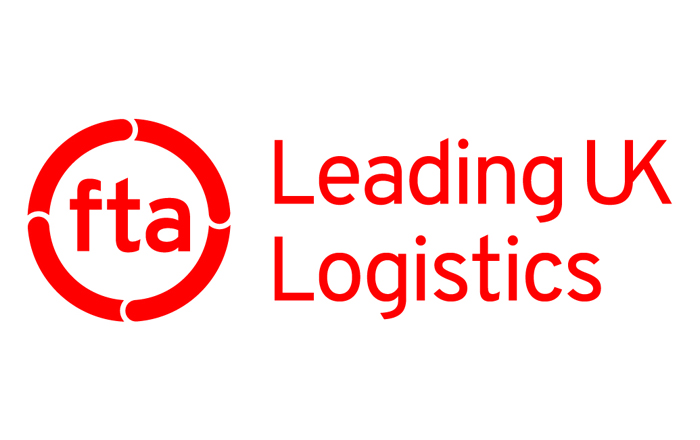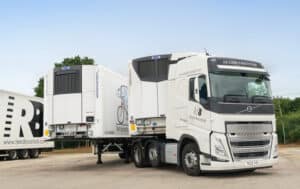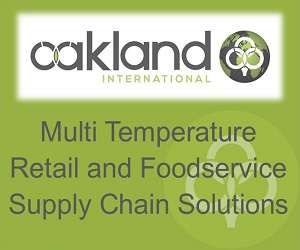On 2 April, Chancellor Rishi Sunak MP announced changes to the government’s Corona Business Interruption Loan Scheme (CBILS), vowing to take “all action necessary” to make sure government backed loans were benefitting businesses as planned. But only a month later, FTA, the business group representing the logistics sector, has called on Mr Sunak to step in again and make the scheme work for businesses across the sector, many of which are currently being stalled or ignored by lenders.
“It seems banks are simply not listening to the Chancellor and are failing to process applications for financial support from stricken businesses quickly enough,” explains David Wells, CEO of FTA. “The CBILS application process needs to be much faster, and more transparent, so that businesses can receive the vital support they are entitled to under the scheme without delay.
“According to FTA’s own polling of businesses from across the sector, nearly a quarter of all logistics companies told us they face potential collapse in the next eight weeks, with 80% needing better access to CBILS to survive.
“These figures are very concerning – businesses across our sector have seen a major decline in revenue, for some up to 100%. And these organisations have only survived thus far by deferring payments of VAT, PAYE, NI and asset lease payments. Mr Sunak told business he would ensure that the £330bn of government support promised to keep industry afloat would reach as many businesses in need as quickly as possible – our message to him is that, for the logistics industry, the time for this support is now.
“In addition, the numbers simply do not stack up: UK finance has disclosed that £2.8bn has now been lent across 16,600 businesses, with a daily dispersal of £300m in 1,785 loans. Yet we have also been told that only 36,000 businesses have applied for a CBILS loan – which seems very low compared with the 16 million private organisations currently operating in the UK. According to our own industry survey, around 25,000 of those looking to apply are logistics businesses! And when you compare these figures to France, where £17.5 billion of loans have already been approved for more than 170,000 businesses, with the expectation of a further £17.5 billion to be agreed by the end of the month, you can see how far behind the UK scheme is.
According to Mr Wells, it would appear that red tape is preventing many businesses from taking advantage of the programme;
“With so many organisations wanting to access the scheme but not yet being counted in the number of applications, we can only assume the current quoted number of applications is so low because businesses have not managed to get past the banks to formally make an application.
“Our concern, and that of our members, is that banks are getting in the way of the application process for CBILS, either because they still want to offer loans on their own commercial terms, or because their processes are taking up too much time, which prevents logistics operators from making a CBILS claim as yet. And while our work with BEIS has resulted in the promise of some welcome funding relief for SMEs, announced yesterday (27 April 2020), this will still leave a huge number of organisations stuck in the application process and fast running out of time.
“To date, I have not heard of a single business across logistics and supply chain that has been granted a CBILS loan, and time is fast running out for the industry charged with keeping Britain trading,” continues Mr Wells. “The Chancellor needs to take an urgent look at the processes in place and identify the roadblocks which are preventing vital funding from reaching those who are most in need of CBILS support.
“Logistics operators need speed and transparency in decision making, and some co-operation from banks which were quick to take bail outs during the financial crisis of 2008. CBILS is the right scheme to help distressed businesses with short-term cashflow issues, but it is simply not working, and Mr Sunak has a responsibility to the economy to sort out the issues with the programme as a matter of urgency, to prevent further damage to businesses right across the economy.”
Efficient logistics is vital to keep the UK trading, directly having an impact on more than seven million people employed in the making, selling and moving of goods. With Brexit, new technology and other disruptive forces driving change in the way goods move across borders and through the supply chain, logistics has never been more important to UK PLC. FTA is one of the biggest business groups in the UK, supporting, shaping and standing up for safe and efficient logistics. It is the only business group in the UK that represents all of logistics, with members from the road, rail, sea and air industries, as well as the buyers of freight services such as retailers and manufacturers whose businesses depend on the efficient movement of goods. For more information please visit www.fta.co.uk.











